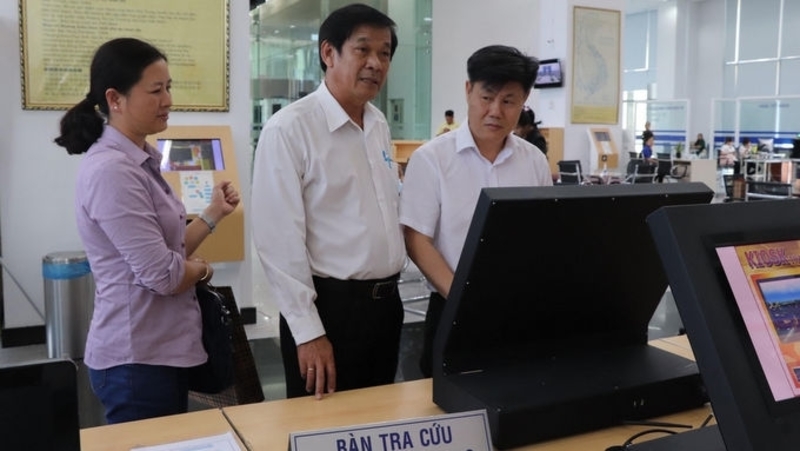
Over recent years, the Vietnamese government has pushed for the development of IT applications and an e-Government in the state agencies’ operation, aiming to better serve people and businesses.
According to a press statement released by the Ministry of Information and Communications, from the beginning of 2019, the Prime Minister has required a breakthrough in e-Government building as well as the completion of mechanisms, implementing experiments, and putting several basic information systems into operation.
Additionally, the government has issued Resolution No.17/NQ-CP (Resolution 17) on a number of key tasks and solutions to develop the e-Government during the 2019-2020 period, with orientations toward 2025.
Under the drastic direction of the government and the Prime Minister, along with efforts made by the Ministries, agencies, and localities as well as support from the international community and both domestic and foreign experts, Vietnam has gained positive results in implementing e-Government.
Most importantly, there has been a positive shift in the awareness of e-Government and the implementation towards a digital government, economy, and society, ensuring the links between IT and administrative reform.
After three months of implementing Resolution 17, a synchronous legal framework for e-Government building has been completed; the deadlock in mechanisms for investment and leasing of information technology services has been gradually removed.
The important information systems, such as the national text communication axis and the information system for meeting and handling government affairs, has been researched and are in the implementation process. Also, the work in safety and security has seen positive improvements.
However, according to the working group under the National Committee on e-Government, several other issues have not been implemented as scheduled, even being postponed. The progress of building a national database and information system has remained slow and the allocation of funds for this activity has been difficult.
The use of completed systems has not been very effective; data connection and sharing has been quite limited. The sending and delivery of e-documents have been implemented widely, but the assurance of their legal values has not been synchronised. Moreover, the forms of digital signature for ministries, agencies, and localities have not been united.
To remedy these problems, the Prime Minister has emphasised that the e-Government is a new and difficult issue, so the implementation will not be successful without determination and removing the old way.
To promote the e-Government building in the coming times, leaders of ministries, agencies, and localities should direct, mobilise, and prioritise resources for the implementation of specific missions. They should lead the way in using digital signatures to approve e-documents as well as be responsible for the progress and quality of works.
These organisations should strengthen the technical infrastructure and upgrade and improve text management and administration software, as well as integrate solutions for digital signature in accordance with process, forms, and legal values of e-documents.
The relevant agencies should enhance the training of cadres, particularly qualified archives employees who can meet the new requirements for the works, while urgently developing public service gates and electronic one-stop information system at the ministerial and provincial levels that will be connected with the national public service portal. It is also crucial to complete the delivery of level 3 and level 4 online public services as the approved list.
















